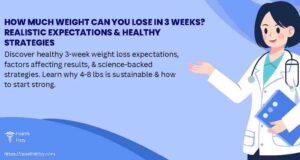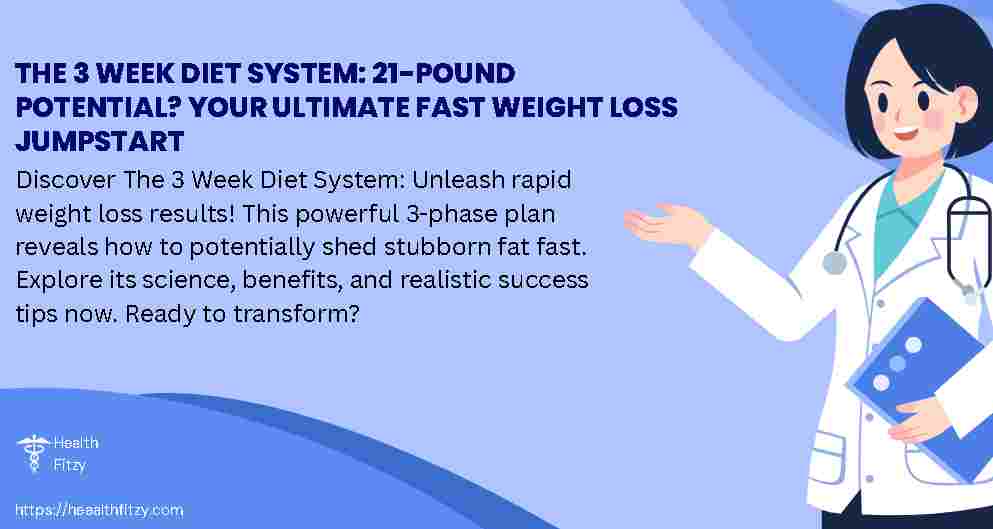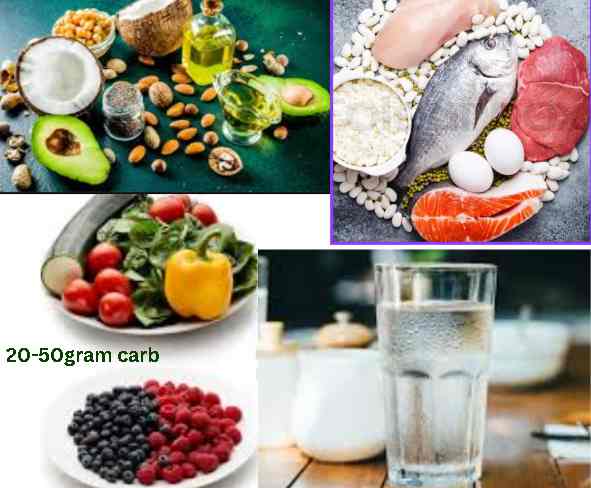The 3 Week Diet System: 21-Pound Potential? Your Ultimate Fast Weight Loss Jumpstart
What is The 3 Week Diet System?
The 3 week diet system – how to lose weight fast: The 3 Week Diet System is a structured weight loss program designed by Brian Flatt, claiming to help individuals shed 12-23 pounds in just 21 days. It combines specific dietary protocols, exercise recommendations, and psychological strategies. Unlike generic crash diets, it emphasizes metabolic manipulation through phases targeting water weight, fat burning, and stabilization. The core premise revolves around “shocking” the body into accelerated fat loss through calorie cycling and macronutrient adjustments.
How Does The 3 Week Diet System Work? (The 3 Phases)
The program divides into three distinct phases, each with unique goals:
-
Phase 1: The “Detox” (Days 1-7)
Focuses on rapid water weight loss by depleting glycogen stores. This phase drastically reduces carb intake (< 50g/day) and emphasizes lean proteins, non-starchy vegetables, and healthy fats. It aims to curb cravings and initiate ketosis-like metabolic shifts. -
Phase 2: The “Fat Burn” (Days 8-14)
Prioritizes fat loss through strict calorie restriction and targeted macronutrient ratios. Protein intake increases slightly to preserve muscle mass, carbs remain very low, and fats are moderated. High-intensity interval training (HIIT) is introduced to maximize calorie burn. -
Phase 3: The “Stabilization” (Days 15-21)
Gradually reintroduces healthy carbohydrates (like sweet potatoes, oats) to prevent metabolic slowdown. Calories increase moderately, focusing on whole foods. This phase aims to solidify habits and prepare for post-diet maintenance.
The Science Behind Rapid Weight Loss
The system leverages established physiological principles:
-
Glycogen Depletion: Low carbs force the body to burn stored glycogen (bound to water), leading to quick initial weight drop.
-
Calorie Deficit: Strict portion control creates an energy deficit, requiring the body to tap into fat reserves.
-
Protein Prioritization: High protein intake helps maintain muscle mass during rapid loss, keeping metabolism active.
-
Metabolic Flexibility: Phased carb manipulation aims to prevent plateaus and train the body to switch fuel sources efficiently.
Key Benefits & Potential Outcomes
-
Rapid Initial Results: Significant scale movement in the first week boosts motivation.
-
Structured Approach: Clear meal plans and phase guidelines reduce decision fatigue.
-
Focus on Whole Foods: Emphasizes unprocessed proteins, vegetables, and healthy fats.
-
Habit Resetting: The 21-day timeframe can help break unhealthy eating patterns.
Important Considerations & Realistic Expectations
-
Initial Loss is Water Weight: Much of the early drop isn’t permanent fat loss. Sustainable fat reduction takes time.
-
Strictness Required: Adherence demands significant discipline; social events or cravings can derail progress.
-
Not for Everyone: Consult a doctor before starting, especially if pregnant, nursing, diabetic, or with chronic conditions.
-
Long-Term Sustainability: The extreme nature isn’t designed as a lifelong eating plan. Transitioning to balanced nutrition is crucial post-program.
-
Exercise is Key: Results depend heavily on combining diet with the recommended workouts.
Tips for Success (If You Try It)
-
Hydrate: Drink 3+ liters of water daily to support metabolism and flush toxins.
-
Prep Meals: Batch-cook lean proteins and veggies to avoid impulsive choices.
-
Listen to Your Body: If feeling dizzy, exhausted, or unwell, reassess or pause.
-
Focus on Non-Scale Victories: Track energy levels, clothing fit, and measurements.
-
Plan for After: Research balanced maintenance diets (e.g., Mediterranean) before finishing Phase 3.
Is The 3 Week Diet System Right For You?
This system might suit someone needing a strict “jumpstart” before transitioning to a moderate lifestyle plan, or preparing for a short-term goal. However, it’s not a magic solution. Long-term weight management requires consistent healthy habits, not quick fixes. For sustainable health, prioritize balanced nutrition, regular activity, and gradual changes you can maintain.
The Bottom Line
The 3 Week Diet System offers a highly structured, intensive approach for rapid weight loss, grounded in metabolic science. While it can deliver fast results, the initial drop is largely water, and the regimen is demanding. Success hinges on strict adherence and a solid post-diet strategy. For safe, lasting change, combine its principles (like whole foods and calorie awareness) with sustainable habits tailored to your life. Always prioritize health over speed and consult a healthcare professional before making significant dietary changes.
How Much Weight Can You Lose in 3 Weeks? Realistic Expectations & Healthy Strategies

Understanding Healthy Weight Loss Timelines
Losing weight requires balancing biology and practicality. Health experts universally recommend a sustainable loss of 1–2 pounds (0.5–1 kg) per week. This pace helps preserve muscle mass, supports metabolism, and reduces rebound risk. In 3 weeks, a realistic goal is 4–8 pounds (2–4 kg), though individual results vary based on unique factors.
Key Factors Influencing Your 3-Week Results
-
Starting Weight: Higher initial weight often leads to faster initial loss, partly from water and glycogen depletion.
-
Calorie Deficit: A daily deficit of 500–1,000 calories (through diet + exercise) drives loss. Extreme deficits risk muscle loss and fatigue.
-
Body Composition: Muscle burns more calories than fat. Those with higher muscle mass may lose fat more efficiently.
-
Metabolism: Age, genetics, hormones (e.g., thyroid health), and sleep quality impact metabolic rate.
-
Water Weight: Early rapid loss (2–5 lbs) often reflects reduced water retention, especially when cutting processed carbs/sodium.
Science-Backed Strategies for Effective 3-Week Loss
Prioritize Nutrient-Dense Foods
Focus on whole foods: lean proteins (chicken, tofu), fiber-rich vegetables, and healthy fats (avocado, nuts). Example daily plan:
-
Breakfast: Greek yogurt + berries
-
Lunch: Salad with grilled salmon
-
Dinner: Stir-fried veggies + quinoa
Why it works: Protein and fiber increase satiety, naturally reducing calorie intake.
Incorporate Strategic Exercise
Combine routines for maximum impact:
-
Cardio: 150 mins/week (brisk walking, cycling) burns immediate calories.
-
Strength Training: 2–3x/week (squats, push-ups) builds muscle to boost resting metabolism.
-
NEAT (Non-Exercise Activity): Walk calls, take stairs—small movements add up!
Hydrate and Sleep for Metabolic Support
-
Hydration: 8–10 glasses/day. Water aids digestion and reduces false hunger cues.
-
Sleep: 7–9 hours/night. The hunger hormones ghrelin and leptin are disturbed by inadequate sleep, which heightens cravings.
What to Avoid: Pitfalls That Undermine Progress
-
Crash Diets: Sub-1,200 calorie plans slow metabolism and cause muscle loss.
-
Over-Restriction: Cutting entire food groups triggers cravings and nutrient gaps.
-
Neglecting Protein: Inadequate protein accelerates muscle breakdown.
-
Skipping Meals: Slows metabolism and may lead to overeating later.
Setting Yourself Up for Long-Term Success
Aim for habits that extend beyond 3 weeks:
-
Track Mindfully: Use apps to monitor food/exercise—but avoid obsession.
-
Manage Stress: High cortisol promotes abdominal fat storage. Try yoga or meditation.
-
Consult Professionals: A doctor or dietitian personalizes plans for your health profile.
Conclusion: Quality Over Speed Wins
While 4–8 pounds is a healthy 3-week target (3 week diet system), non-scale victories matter more: better energy, improved sleep, or looser clothes. Rapid loss often rebounds. Focus on incremental changes—like swapping soda for water or adding daily steps—to build lasting health. Post-3-weeks, continue your habits to lose weight and keep it off.
The Carb Lovers Diet 7-Day Plan: Enjoy Healthy Carbs & Sustainable Weight Loss
The Carb Lovers Diet 7-Day Plan: Enjoy Healthy Carbs & Sustainable Weight Loss



